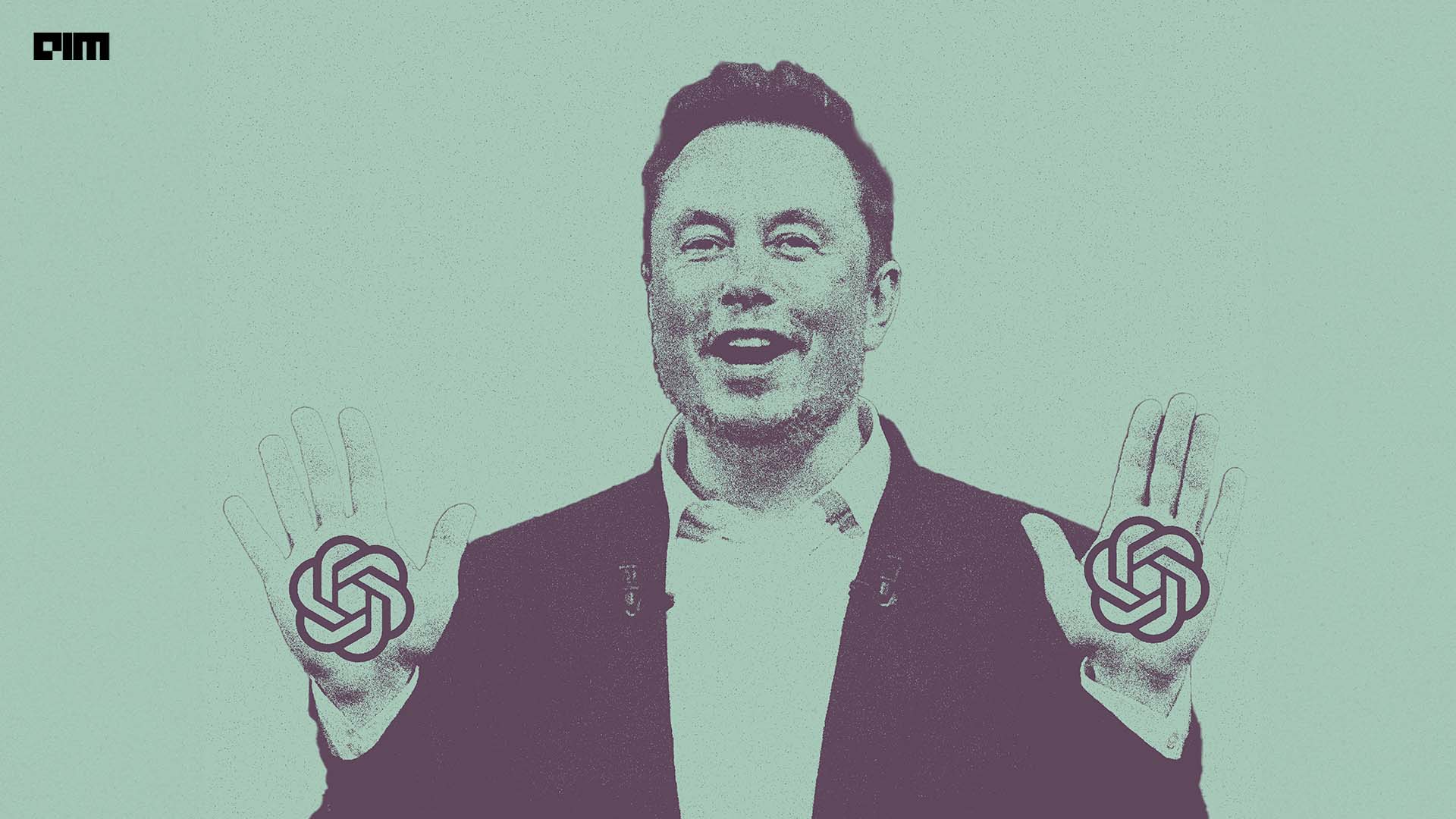
Last Thursday, Elon Musk filed a lawsuit against OpenAI, the world’s most influential AI startup, for deviating from its original mission and becoming a de facto subsidiary of its investor company Microsoft.
“OpenAI, once a carefully crafted non-profit structure was replaced by a purely profit-driven CEO and a Board with inferior technical expertise in AGI and AI public policy. The board now has an observer seat reserved solely for Microsoft,” said Tesla CEO Musk.
At the same time, both Musk and Altman have been proponents of AGI.
OpenAI is now focusing on humanoid robots as confirmed by its recent investment in AI robotics company Figure AI whose latest humanoid robot is Figure-01, is similar to Musk’s Optimus-Gen 2. Sam Altman aims to improve robotic capabilities in processing and reasoning from language. Robotics has been Musk’s forte for the longest time and Altman’s entry into this space might have irked him.
The first section of the lawsuit states, “On information and belief, OpenAI is currently developing a model known as Q* that has an even stronger claim to AGI”.
As of late last year, OpenAI has been reportedly working on a project Q* (pronounced Q-Star), capable of solving unfamiliar math problems at grade school levels. With Q*, OpenAI is likely inching closer towards AGI, as per a few people at the company, as per The Information.
In a previous interview with CNBC’s David Faber last year, Musk said that the diversion of OpenAI from a non-profit, open-source to a for-profit, closed-source entity is “weird”.
Comparing the current stance of OpenAI with its original mission, Musk said, “I mean, this would be like, let’s say you funded an organisation to save the Amazon rainforest, and instead, they became a lumber company and chopped down the forest and sold it for money”
Musk, a former founding member of the company, invested $50 million to OpenAI in 2014 but left in 2018 when the company shifted to profits and close source approach.
“If it is legal to start a company as a nonprofit and then transfer the intellectual property to a for-profit that then makes tons of money, shouldn’t everyone start doing that? Shouldn’t that be the default?,” added Musk during the interview.
Referencing the “Sparks of A.G.I.Early experiments with GPT-4” paper, according to Musk’s legal team, the complaint stems from an agreement in 2015 when Altman and OpenAI co-founder Greg Brockman approached Musk to form a nonprofit lab focused on developing AGI for the greater good.
Musk, a co-founder of OpenAI at the time, agreed to this mission. However, the lawsuit asserts that OpenAI has shifted its priorities to maximise profits for Microsoft rather than adhering to its initial commitment.
The lawsuit draws heavily on a consequential paper from Microsoft, OpenAI’s primary partner. The paper, titled “Sparks of A.G.I.,” authored by Microsoft researchers and executives, highlighted the perceived AGI capabilities of OpenAI’s GPT-4 system.
Closer to AGI
Musk unveiled its second-generation humanoid robot, Optimus Gen-2, in a December 2023. The video showcases various improvements made to the humanoid since its prototype debut earlier in the year, claiming a 30% increase in speed and a 10kg weight reduction.
The humanoid has improved functionalities like improved torque sensing, articulated toe sections, and enhanced human foot geometry. Optimus Gen-2 can also perform squats in a gym and handling eggs, showcasing improved balance, full-body control, and new hands with tactile sensing.
In the context of Musk and Altman’s big bets on AGI, Gary Marcus suggests that if OpenAI has truly attained AGI, it can regain control of its software from Microsoft.
“Elon’s lawsuit has put them in a position having to prove that they *haven’t* reached AGI, even though OpenAI likes to hint that they have or are close. So they need an expert witness to testify e.g., that their partner Microsoft was full of it when they said that GPT-4 represented “Sparks of AGI”, said Marcus.
Microsoft’s research lab, granted exclusive access to OpenAI’s A.I. technologies through a $13 billion commitment, delved into testing an early version of GPT-4 in fall 2022. The researchers, led by Sébastien Bubeck, noted unprecedented outcomes such as GPT-4 generating complex mathematical proofs in poetic form, creating code to draw a unicorn, and offering practical advice on arranging diverse household items.
OpenAI Drama Continues
OpenAI has a history of attracting a series of issues lately.
Sam Altman was ousted by the non profit board of directors in November for being overly assertive in the commercialisation of OpenAI’s products such as ChatGPT including concerns about the potential risks associated with the rapid pace of monetisation, fearing the development of a rogue AI that could have adverse effects on “humanity”.
However, when nearly 500 employees issued an ultimatum of resignations en masse, Altman and Brockman returned.

Currently, Sam Altman has not addressed the lawsuit except for subtle hints that the team has encountered similar hindrances before and will overcome them again.
The post The Real Reason Why Elon Musk is Suing OpenAI appeared first on Analytics India Magazine.